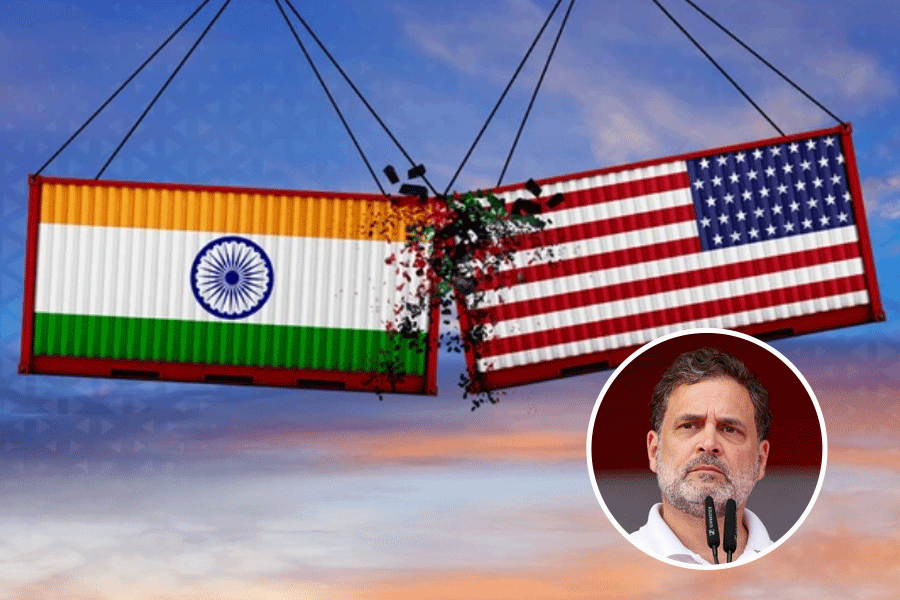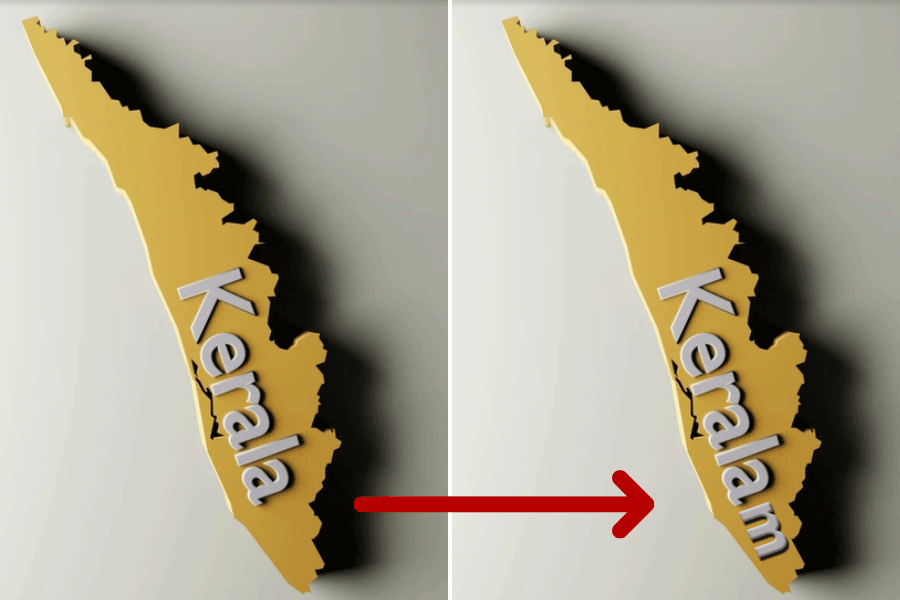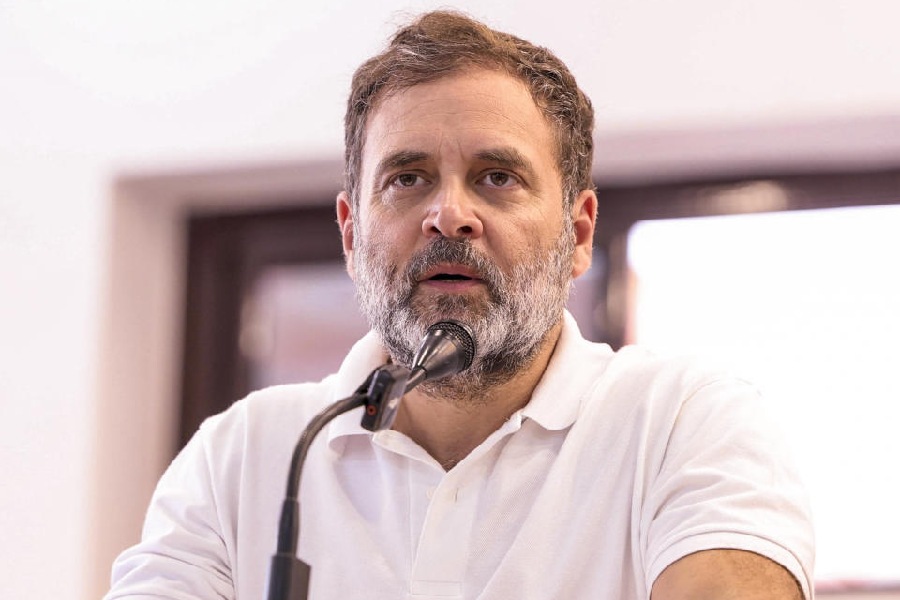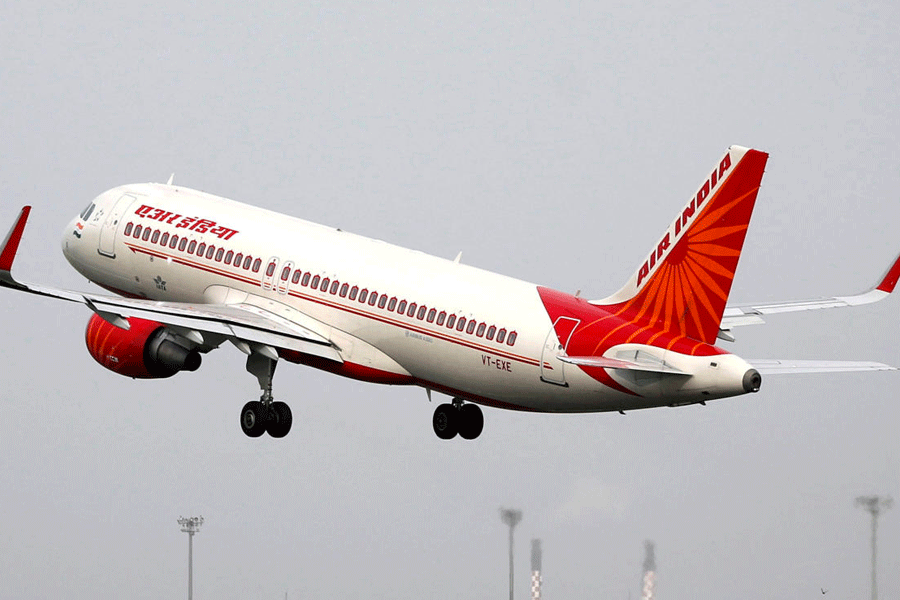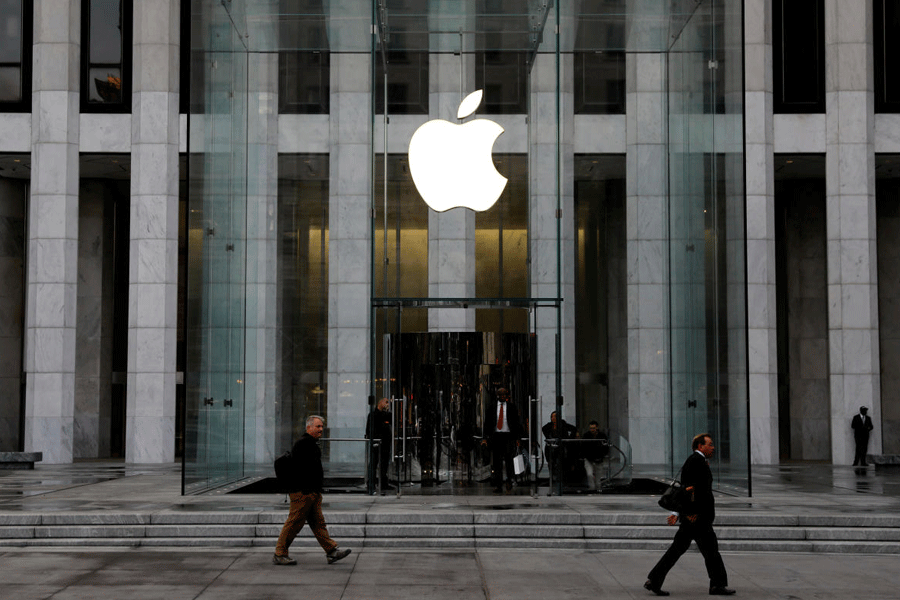Shape is relative
Sir — Beauty lies in the eyes of the beholder. In West Bengal’s Arambagh and Hooghly, farmers were surprised to find potatoes misshapen like ginger growing on their fields. These oddly-shaped potatoes have put off buyers, making farmers anticipate huge losses. But what seems off-putting to West Bengal seems divine to Uttar Pradesh. In Sambhal, a similarly misshapen potato tumbled out of the soil apparently bearing clear outlines of four of Vishnu’s avatars — turtle, serpent, fish, and boar — leading to the local priest worshipping it as a religious artefact. Be it defective or divine, the humble potato would taste equally good when boiled and mashed with a touch of butter or mustard oil.
Sayani Samajdar,
Howrah
Too stringent
Sir — If one studies the provisions of the proposed Immigration and Foreigners Bill, 2025, one can find resonances with the stipulations mentioned in the Centre’s two very controversial projects — the Citizenship (Amendment) Act and the National Register of Citizens.
The immigration bill gives overarching powers to the Centre to control the entry, stay and departure of foreign citizens. It is feared that the bill will be misused by the Centre to silence anti-government voices. Such a move would be a clear violation of Article 14 of the Constitution which guarantees equality before the law to all individuals, including foreigners.
Jang Bahadur Singh,
Jamshedpur
Sir — The Immigration and Foreigners Bill, 2025, introduced in the Lok Sabha last week, is ostensibly aimed at modernising and consolidating immigration laws some of which date back to the colonial era. The Bill contains several stringent provisions: any immigrant caught using a fake passport or visa will face a prison sentence of up to seven years and a fine of up to Rs 10 lakh.
National security must be of the highest priority. But since the legislation empowers the Centre to exert control over places that are “frequented by any foreigner”, critics suggest that these stringent provisions might lead to the imposition of crippling curbs on foreigners. If that were to happen, it would be a bad advertisement for India’s global standing.
Khokan Das,
Calcutta
Strange pact
Sir — The sudden tie-up between the Indian telecommunication companies, Reliance Jio and Bharti Airtel, and Starlink, the American telecom giant owned by Elon Musk, is suggestive of India yielding to the tactics of the American president, Donald Trump. It is clear that Musk holds a considerable sway over the government of the United States of America and the deal would allow India to curry favour with the US president.
However, the deal poses considerable risks to India’s data and defence security. The hurried spectrum allocation belies transparency and violates the relevant verdict of the Supreme Court of India, which regarded spectrum as a scarce source that must be allocated only through auction.
Sukhendu Bhattacharjee,
Hooghly
Sir — Bharti Airtel and Reliance Jio tying up with Starlink seems to be an orchestration of the Narendra Modi government. India has reduced itself to a courtier in Donald Trump’s court and is bowing its head in deference. There have been reports about Starlink’s satellites experiencing functional issues. Both Bharti Airtel and Reliance Jio had for long been opposed to Starlink’s entry into the Indian market. Their sudden change of stance thus raises suspicion.
S. Kamat,
Mysuru
Dialogue matters
Sir — The ministry of external affairs is hosting the 10th edition of the Raisina Dialogue till March 19 during which India will deliberate with the rest of the world on matters of geopolitics, militant mercantilism, and peace among others.
In light of the recent global turbulences — the retaliatory tariffs imposed by Donald Trump, the wars in Ukraine and Gaza, the turmoil in Bangladesh are instances — such a dialogue will help countries to collaborate constructively. India must use the platform to firmly state its position vis-à-vis these global issues.
Kirti Wadhawan,
Kanpur
Wide awake
Sir — A recent survey has highlighted that 59% of Indians get less than six hours of uninterrupted sleep daily (“Eyes wide open”, Mar 16). Sleep is essential for maintaining physical health, emotional well-being, and cognitive functioning. Sleep needs vary by age and understanding these requirements can help individuals optimise their sleep patterns. Lack of sleep increases the risk of diabetes, heart disease, and mental health problems.
S.S. Paul,
Nadia
Sir — Today’s fast-paced world has made it impossible to have 7-8 hours of sleep daily. Sleep becomes the first casualty in the struggle for better livelihood opportunities. Children these days are always glued to their phones. This affects their sleep pattern. The sight of adults dozing off while commuting to or from work is proof that they are not getting enough sleep.
Anthony Henriques,
Mumbai
Sir — Sleep is nature’s nurse. The modern job market has made generations of people sleep-deprived.
Fateh Najamuddin,
Lucknow
Mercury soars
Sir — India experienced extreme heat waves in 2024 (“Get ready”, Mar 14). The under-reporting of heat-related deaths can be attributed to the lack of an efficient data collection mechanism. India must build a robust forecasting system and increase green infrastructure.
Prasun Kumar Dutta,
West Midnapore


